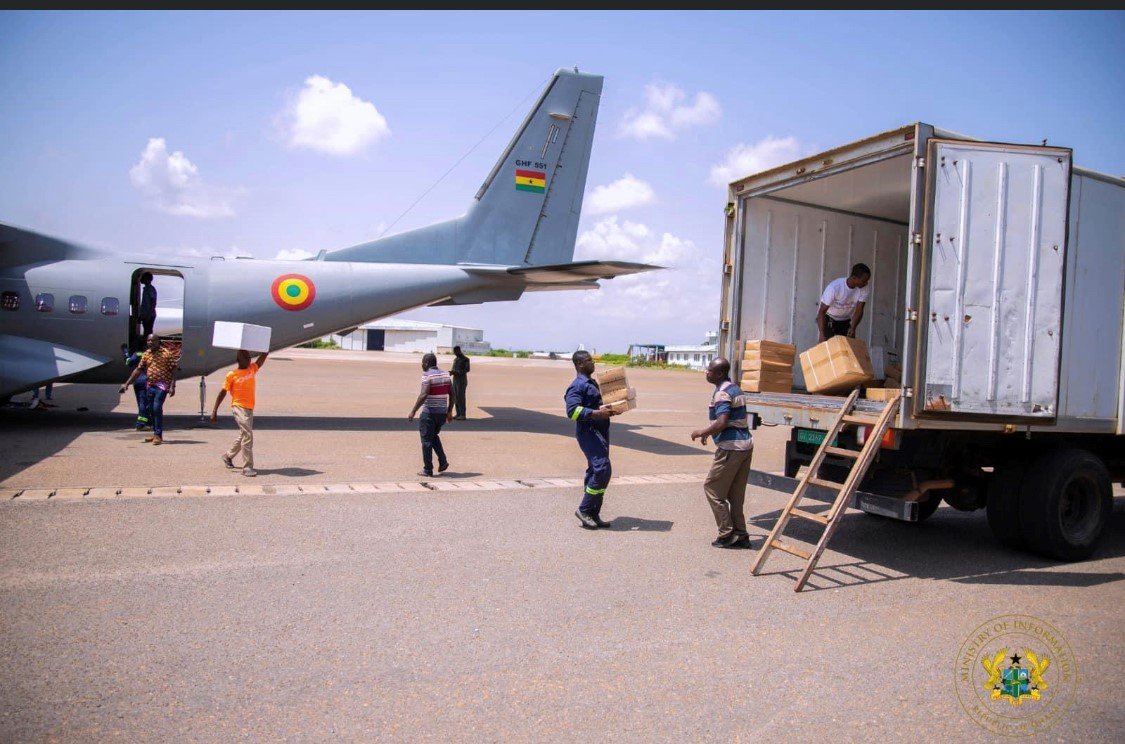
Some officials offload the vaccines from the cargo plane for onward distribution

The Ministry of Health and the Ghana Health Service (GHS) received the first consignment of Measles, Bacillus Calmette–Guérin (BCG), and Oral Polio vaccines on Saturday.
Ghana had run out of BCG, Measles-Rubella (MR), and Oral Polio Vaccine since the last quarter of 2022, a situation the Health Ministry attributed to COVID-19.
During a press conference last week, the sector Minister, Kwaku Agyeman-Manu, explained that most vaccine manufacturing firms diverted their resources to the production of COVID-19 vaccines, which is now affecting the supply chain of vaccines for the immunization of children.
He noted that the situation was not peculiar to Ghana and that the World Health Organisation (WHO) had confirmed the issue.
“The recent shortage in vaccines for measles, as regrettable as it is, is symptomatic of the steady global decline in measles vaccination since the beginning of the covid-19 pandemic,” he said.
Updating Ghanaians on the consignment received, the Ministry of Information in a Facebook post disclosed that distribution to various regions and facilities was underway adding that “more vaccines are expected in Ghana in the coming weeks from multiple sources.”
The Director-General of the GHS, Dr. Patrick Kuma-Aboagye, was on the tarmac of the Kotoka International Airport (KIA), leading the delegation to welcome the consignment.
Procurement
About GHC72 million released to the Ministry by the National Health Insurance Authority (NHIA) in 2022, had been used for the procurement of some childhood vaccines.
Despite the global challenge in the acquisition of some childhood vaccines, Ghana’s immunisation performance coverage remained among the best in the world. In 2021, the nation recorded 95 percent of childhood vaccination coverage.
The Health Ministry is also working with UNICEF to fast-track the processes to ensure that Ghana was on track with its immunisation record and quickly overcome the bottleneck.
“The Expanded Programme on Immunisation (EPI) has been a flagship disease control program in the country and arguably one of the best programmes if not the best in the sub-region with high coverage levels of over 95%. We have an established system for forecasting, procurement, supply, and distribution of routine vaccines, and monitoring their use,” Mr Agyeman-Manu had said.




